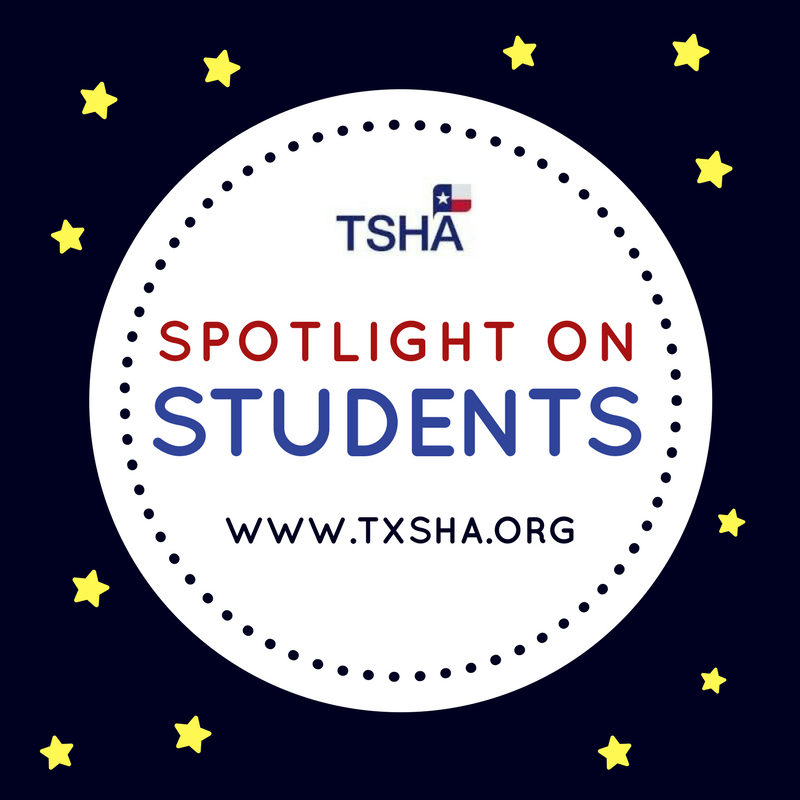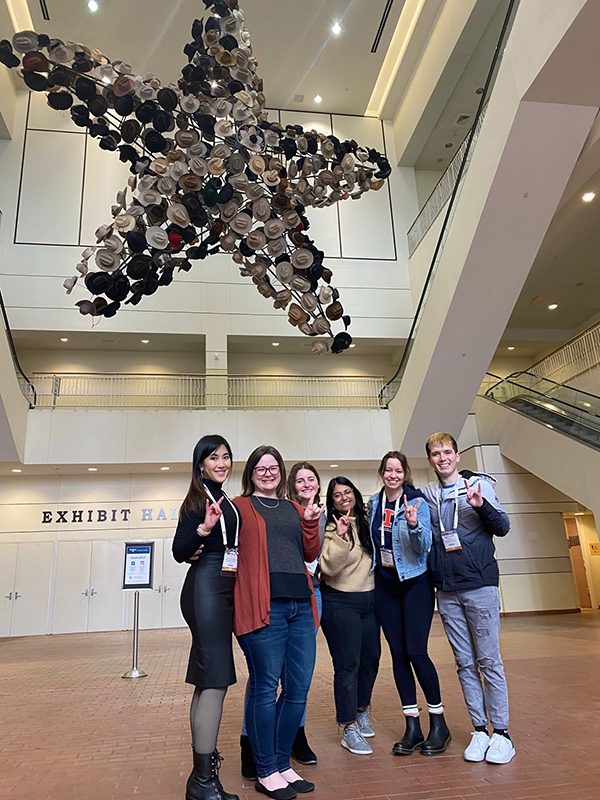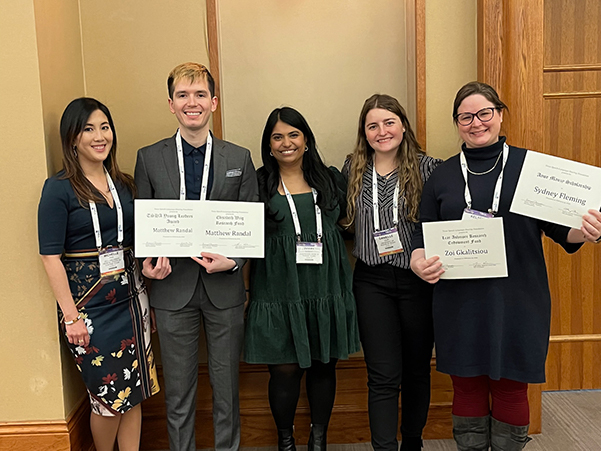 By: Matthew Randal, BS, TSHA Graduate Student Representative; Danielle Clay, Audiology Committee Member; Malinda Mullet, TSHA Student Member; and Sofia Fabi, TSHA Student Member
By: Matthew Randal, BS, TSHA Graduate Student Representative; Danielle Clay, Audiology Committee Member; Malinda Mullet, TSHA Student Member; and Sofia Fabi, TSHA Student Member
Danielle Clay, second-year audiology doctoral Student at University of Texas at Austin
I was so excited to attend the Texas Speech-Language-Hearing Association (TSHA) Convention in person this year! One of the best things about the Convention is the sense of community and camaraderie between all professionals. I was able to meet people across the state and reconnect with others whom I had not seen since before the pandemic. The spirit in the exhibit hall and in the hallways is intoxicating and fosters greater connection with those who attend.
I think the TSHA Convention is particularly valuable to students as we are surrounded by professionals who are passionate about their respective fields and are eager to share their knowledge. We sat in on presentations that varied from hot topics like auditory processing disorder by Dr. Gustafson and Dr. Leigh to talks on ethics and legislation. I am already excited to attend next year in Austin!
Malinda Mullet, second-year audiology doctoral Student at University of Texas at Austin
I attended the TSHA Convention mainly because it was my goal to attend a professional conference this year to network with professionals and to learn about the current research being done in the field. I had never attended a professional conference before, and I was excited to absorb everything I would learn over the weekend to apply in the classroom/clinical placement. I was pleasantly surprised by how much there was to do and how welcoming the Convention was to students. After the presentations, I met with audiologists from around Texas and networked with a prospective externship site (fingers crossed!) that aligned perfectly with my interest in educational audiology. I am already looking forward to the TSHA 2023 Convention with the goal of presenting my own original research next year at the student symposium. I learned so much from this weekend, and it served as the perfect morale booster to get through the remaining semester. I recommend attending the TSHA Convention to all students—undergraduate and graduate—who are either interested in or preparing to enter the fields of speech and hearing sciences. It is a worthwhile experience that broadens your horizons to all the endeavors going on in the field and all the amazing people in it.
Sofia Fabi, first-year undergraduate speech-language and hearing science student at University of Texas at Austin
As a first-year undergraduate student, I found my experience at the TSHA Convention invaluable. It revealed a myriad of insights from qualifications and skills sought by employers to the scope of research within speech-language-pathology and audiology. I could not believe the degree of daily creative problem-solving in our fields when listening to various speakers and their approaches. As Brittany Rush had discussed in her presentation, the international committee had referenced a study on pigs and their swallowing mechanisms as part of their process in developing the International Dysphagia Diet Standardization Initiative (IDDSI) framework. In Dr. Le Prell’s presentation regarding the mechanism and pathology of noise-induced hearing loss (NIHL), we observed the efficacy of using antioxidants to treat NIHL in rodents.
I found the poster presentations from the graduate students very intriguing as well. These presentations were much easier to digest, and many of the students were happy to explain the terminology I haven’t learned yet. I enjoyed asking questions about their methods and plans for their studies. For the presentation about the effects of screen time on language development, Anissa Wilson discussed how the lack of representation in the sample from parents without a college education could have caused some confounding conclusions in their results. They hoped to expand their sample in order to draw more accurate conclusions.
Dr. Morris’ presentation about applying for graduate school was also very helpful. She shared some strategies, including researching which metrics (i.e., GPA, GRE) and standards the program might have and weighing out our likelihood of acceptance based on our circumstances. Dr. Morris also gave some helpful tips for time management, which she refers to as workload management. I found this helpful as I personally struggled with balancing work, school, and extracurricular activities.
These experiences helped me become more aware of what a career path in the speech-language and hearing sciences would entail along with any necessary precautions I may have to take along the way. The different presentations also sparked several questions, which I hope to answer in class or maybe even my own capstone project in the future. Overall, I am grateful to have attended the TSHA Convention, and I highly look forward to going next year as well.
